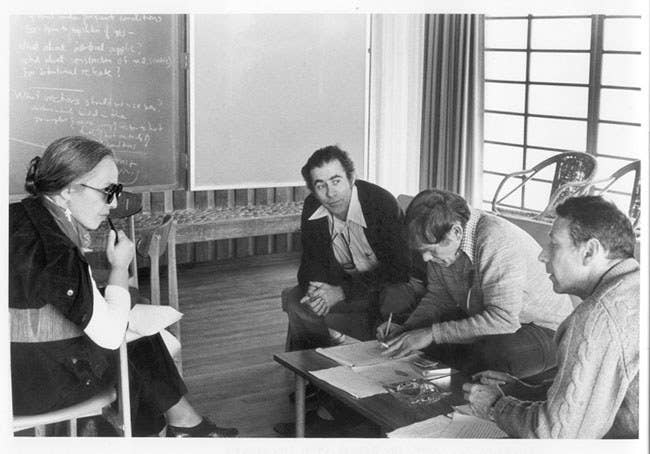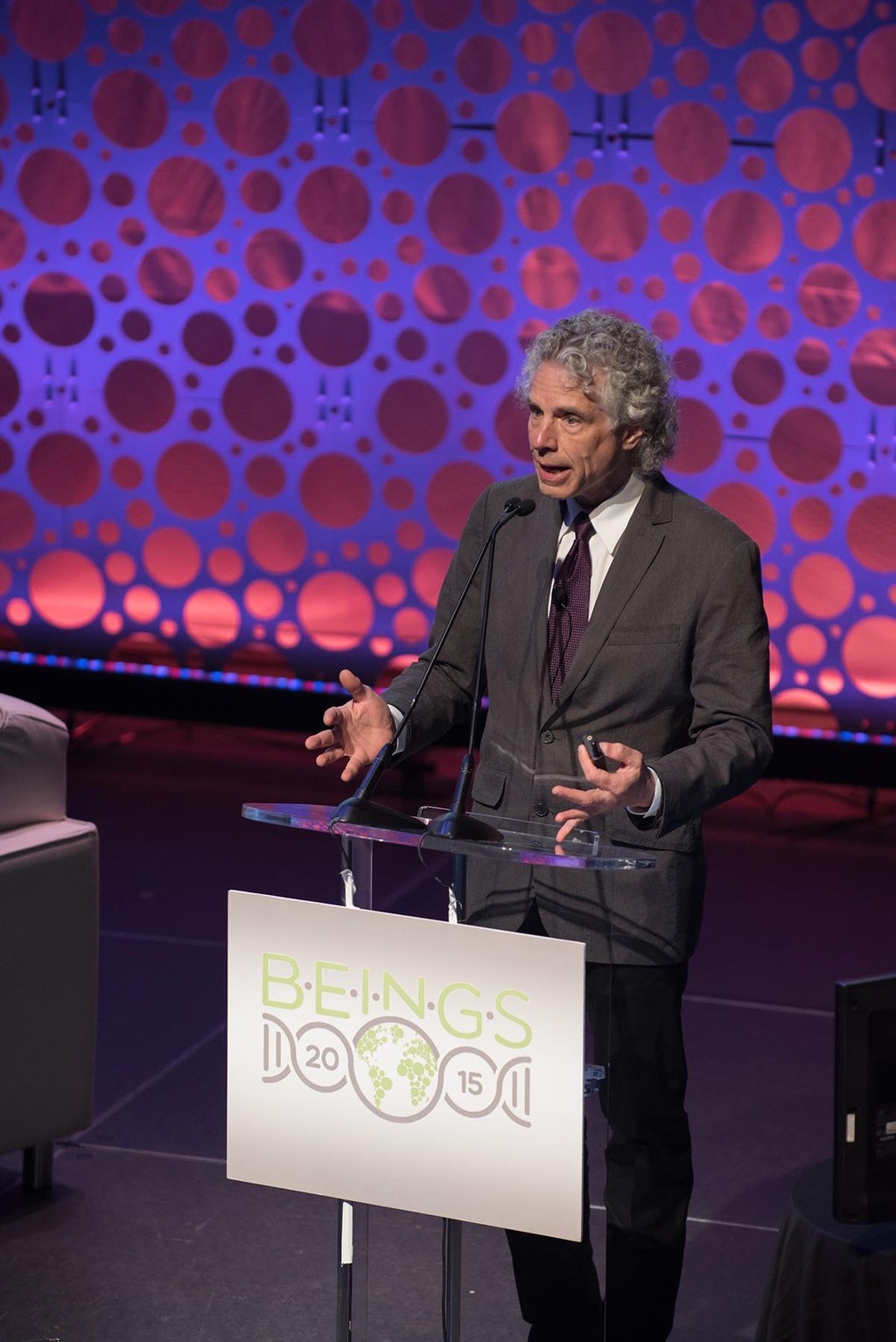
On Tuesday afternoon, roughly 135 scientists, bioethicists, philosophers, lawyers, and policymakers from 25 countries wrapped up the first-ever global summit to carve out a vision for what the future of biotech should — and, crucially, shouldn't — look like.
It was an unusual venue for a gathering of the world's preeminent scientific community: Atlanta's big brick Tabernacle, an old Baptist church now used mostly as a music venue, and covered in swirling purple and red murals. Those attending the two-day summit — called Biotech and the Ethical Imagination, or BEINGS — were charged with a seemingly insurmountable task: to figure out practical and ethical guidelines for a lot of sticky scientific issues, such as egg donations, stem cell research, gene patents, and bioterrorism.
"Science can only pronounce definitively about things that it can measure," Margaret Atwood, famed science fiction author and one of the event's distinguished faculty members, told BuzzFeed News. "You're getting people from the side of the fuzzily quantifiable values talking to the people who like to be very precise."
That mix of people from across the spectrum of biotech meant a good amount of confusion, at least at first. The conversations on stage and off were at turns combative and muddled, with many scientists favoring less regulation in the name of scientific progress, and bioethicists imagining dystopian futures in which biotech goes unchecked.
According to the event's organizer, Emory bioethicist Paul Wolpe, the idea for BEINGS had been simmering in his head for nearly a decade — well after the cloning of Dolly the sheep and the sequencing of the human genome brought genetics to the forefront of a national conversation.
But the ethics of genetic technology made headlines again just a month ago, when a storm erupted over a Chinese paper describing the first-ever gene editing done on human embryos, raising fears of so-called designer babies. Scientists from across the world published multiple letters of protest in major journals calling for a halt to such research. But as several commenters at the summit noted, "the genie's out of the bottle."

The last time scientists got together to set a vision for biotech was in 1975.
At the famed Asilomar Conference on Recombinant DNA, about 140 scientists met at a stateside location in northern California to discuss the emerging technologies around genetics — looking at the potential for risks as well as the need to draw lines in the sand.
The Asilomar guidelines concluded that researchers could combine genetic information from different plants and animals, provided they did so with the safety of people and the environment in mind, and also set boundaries for which types of experiments were off-limits. The guidelines were heavily influential in the next 40 years of biotech. But Wolpe noted the difficulties of coming to a similar sort of consensus today.
"Asilomar gathered all of the scientists of the day who could actually do this work," Wolpe told BuzzFeed News. Now, he added, the biotech industry has grown to include over 1,300 companies, employs over 175,000 people, and rakes in some $300 billion a year. So drawing up a unified consensus statement in 2015 is a tall order.

Many scientists at BEINGS favored a hands-off approach to biotech research.
Perhaps most outspoken on this point was Harvard psychology professor Steven Pinker. His message, displayed prominently on the PowerPoint he delivered to the group of delegates, was clear: "Stay out of the way."
"Biomedical research has the potential to save a vast number of lives and prevent staggering amounts of human suffering," Pinker told BuzzFeed News. "Getting in the way of progress in biomedical research means more people will be sick and die. A truly ethical bioethics would weigh the benefits to humanity against the costs, while the most public bioethics forums such as this one tend to overrepresent the worriers, the handwringers, and the naysayers."
Dan Gincel, executive director of the Maryland Stem Cell Research Fund, echoed this sentiment. Showing a picture of a red Ferrari, Gincel argued that researchers in biotechnology are trying to move forward as fast as possible, while the regulators are the brakes.
"Of course we need those brakes so we don't fly off of a cliff," Gincel said. "But I would argue that right now, especially with cellular biotech, we're at the bottom of a hill."
Harvard geneticist George Church pointed out that while there is space for worrying, it's hard to know exactly what to worry about. Still, scientists need to be asking themselves tough questions about their research and its potential implications. "Even though it's hard for us to predict, we still have to do it anyway," Church told the audience.
Others insisted that many of the scientists were not engaging enough with the potentially troubling long-term consequences of biotech research, or thinking about its global impact. How do you weigh the risks and benefits of engineering extra-virulent flu strains? What are the effects of being a career egg donor? What happens when research is done on the genomes of indigenous populations without their permission?
Some of these arguments boil down to determining who will reap the benefits of biotech research.
"The flip side of risk is benefit, right? So how do we think about distributing benefits?" asked Ruha Benjamin, an assistant professor of African American Studies at Princeton who focuses on issues of science, health, and technology. "There is no such thing as trickle-down biotech."
The summit was not meant to put up obstructions, others noted, but to acknowledge that there needs to be more group decision making. "The pursuit of knowledge is not value-free," said Margaret Somerville, director of the Centre for Medicine, Ethics and Law at McGill University. "That means we have to ask if we're ethically justified in pursuing it."
Spoke @ #BEINGS2015 Bioethics powwow. Sadly, some still use woolly dignity/sacredness arguments against curing disease & preventing death.
Luckily, there was lots of coffee. They'll need it.
At the end of the day on Tuesday, roughly 75 tired delegates sat down to begin to compose a consensus statement, which they hope to publish in a major journal in about eight months. The hour had arrived, Wolpe told the delegates, for "the real work, the hard work."
The final document will be a series of broad guiding principles on genetic modification, biosafety, ownership, and donorship. It will address goals, risks, access, regulatory suggestions, and international responsibility. As of now, however, it's unclear how much the consensus statement — which is not a rulebook, but a guidebook — will actually matter.
"They're pinning down the questions that need to be asked — it's a conversation that has to happen," Atwood said. "In the end, we're trying to decide what kind of house we all want to live in."
